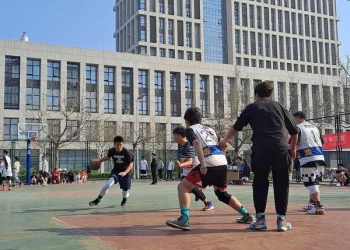To apply for a master’s degree in Japan, you must also meet certain language requirements.
So what level of Japanese do students have to speak to apply?
Come here to see the level of Japanese required for graduate school in Japan.
1. Among Japanese graduate students who are required to study liberal arts in Japan, liberal arts students basically account for half of the majority.
With the understanding of Japan, most students majoring in Japanese have the idea to study in Japan, so the number of liberal arts students studying abroad has been high.
In the application process, the language requirements for liberal arts students are basically N1 level, and of course, the higher the score, the better the advantage.
If you want to study business, in addition to good Japanese, also have to be a good English, basically the country’s public, early on the theory is all to see your TOEFL score, really can’t test out that TOEIC to live, but still prepare for TOEFL.
If you really don’t want to take the English test, then you look at each school’s admissions guidelines, there will always be a surprise waiting for you, this is true.
2. Science and Engineering Professors seem to favor science and engineering applicants with high English proficiency over liberal arts applicants.
Therefore, there will be a lot of successful cases of applicants who do not have Japanese scores but have excellent TOEFL scores;
Normally, a Japanese level 2 plus a TOEFL 80+ score will attract the professor’s attention;
Of course, there are also some majors in science and engineering, such as computer science, machinery, electricity and other popular majors. Due to the large number of applicants and fierce competition, it is more difficult to apply.
For these majors, aim for N1 and TOEFL scores of 80 +.
1. The most conventional way — the first to read the language school and then the college is really the most conventional, considering that many foreign students are not good at Japanese, so the first to study in the language school, and then collect information, in the college is more common.
However, the language school is not helpful for admission, and some language school teachers even reject admission (I often quarrel with the teachers because of the admission of students), so this road often causes problems for students.
Language school is a springboard, give you a visa, and into the study can not count on too much, I hope we can have a preconceived concept.
2 the most effective, the most economical way — apply for the graduate student of national university first in the country, take an examination of this to want to say separately again, because some major can apply for graduate student, and some can not.
For example, business class is very difficult to apply for graduate students, other humanities and social classes are not good to apply for.
Business and economics at schools like Saya, Keio, Toho, and Hitotsubashi are all not available for graduate studies (or special interviews).
Still HAVE LAW, MEDIUM TO WAIT, CAN SAY SO, POPULAR LIBERAL ARTS MAJOR IS VERY DIFFICULT BASICALLY, EDUCATION KIND IS RELATIVELY GOOD APPLY FOR A FEW.
So if the test business economics management, the suggestion is to take the first road.
Science and engineering is a little more simple, and some majors such as pharmaceutical medicine and even must first go postgraduate this way.
Add to Japanese REQUIREMENT is not tall, suit TO apply for graduate student QUITE.
From Dongu on, almost all public universities can apply, and most of them are twice a year, and the ones like Beijing University don’t even specify the time, they can enroll every month.
3. The safest way — the monks who directly applied for the G30 program in China were wrong to call the G30 program a study abroad program, because G30 is a university program in Japan, and the hospitality of foreign students is only one of them.
And the project doesn’t really exist anymore, it’s just the same name.
I don’t really recommend the English program, but I can talk about it.
Eighty percent of the English programs are science programs, and very few are arts programs.
Because every school has more or less English programs, standards vary.
Some want everything: the GMAT, GRE, TOEFL, etc. Some don’t want anything, even the TOEFL score.
The educational level and discipline strength of Japanese universities are world-class, especially in the fields of physics, chemistry, biology and medicine.
Japan is home to many Nobel laureates, leading the world in the number of laureates.
If you are interested in science, studying abroad in Japan can provide you with a high level of university education.
2. Japan has a high employment rate. Many people will consider whether they can stay and work in Japan after graduation.
The Japanese society is increasingly young and aging, and the government is encouraging high-level talents to stay and work in Japan.
According to Japan’s official statistics.
Ninety-eight percent of college graduates are successful in finding jobs.
And it’s easier to get a work visa than in Europe or the United States.
In addition, after working in Japan for five years, people can apply for permanent residence in Japan.
3, low cost of studying in Japan compared with Europe and the United States, both tuition and living expenses are very affordable, private universities may be more expensive, but it is still much cheaper than Europe and the United States.
In addition, Japan has a wide variety of scholarships, including more than 200 scholarships from the government, foundations and private organizations. Schools also offer tuition waivers!
4, allow to work to earn extra money is different from some European and American countries, Japan is allowed to work students, and work income is very considerable!
As for the job content, as long as it is not on the edge of illegal crazy testing, basically can do any job.




















